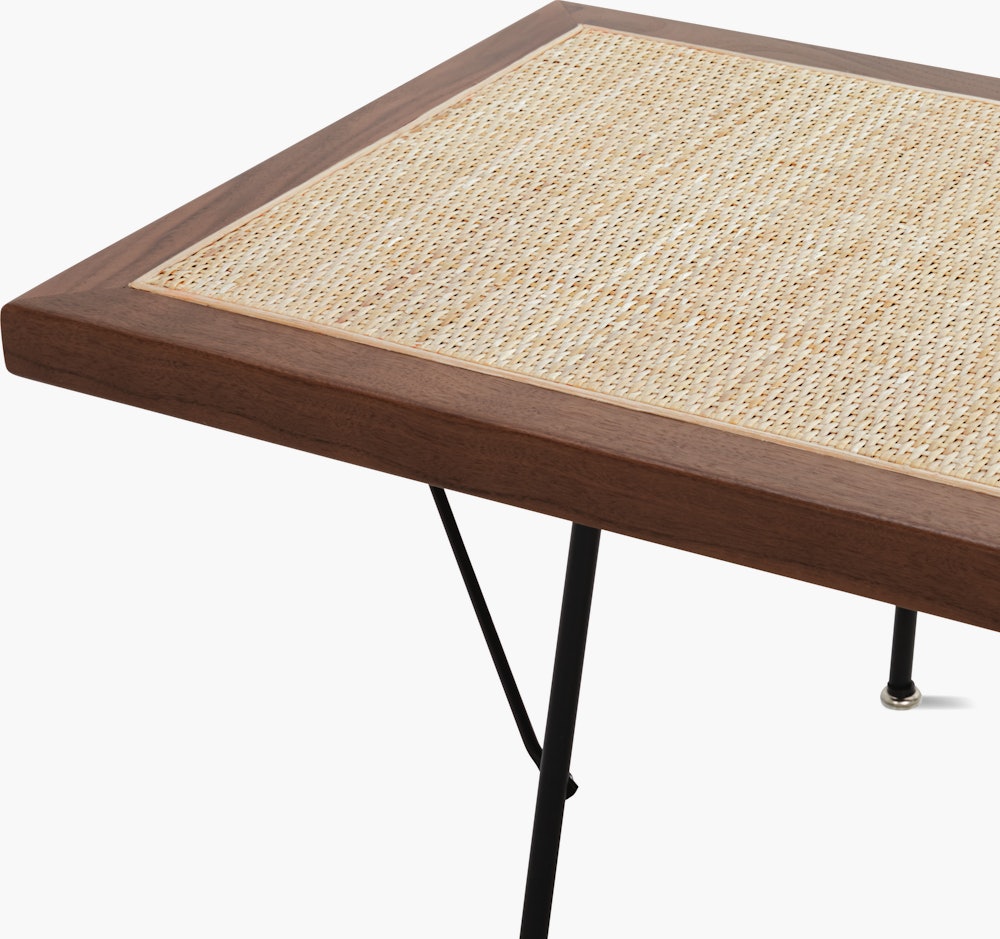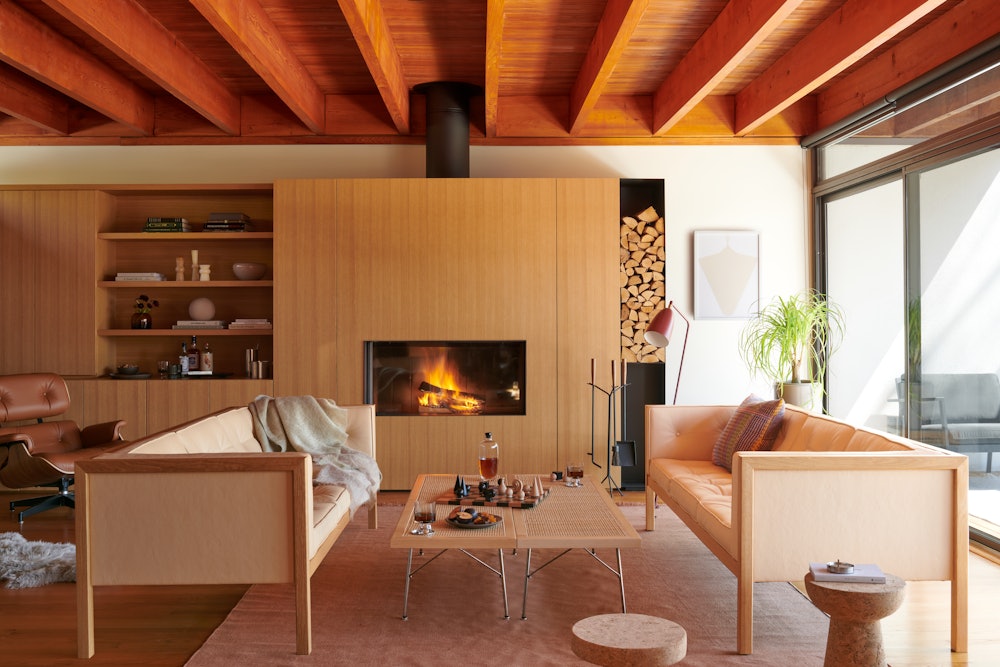Nelson Cane Bench
Nelson Cane Bench
Shipping + Delivery
Easy Returns
Not satisfied? Return items within 30 days. Learn More
Design Concierge
Need help designing your space? Learn more about our complimentary interior design services
Authenticity Guaranteed
This is an original, authenticated product.
Details
- Cane platform with maple or walnut border.
- Black or chrome metal legs.
- Serves as a comfortable seat, coffee table, ottoman, or surface for display.
- Authentic 1952 design by George Nelson, now back in production.
- Brand
- Herman Miller
- Collection
- Nelson Bench Collection
- General Dimensions
-
- 14" H 18" W 48" D
- Assembly
- Requires Assembly
- Warranty
-
5-year warranty
Terms and conditions apply. Learn more
48"
- Height (in): 14
- Width (in): 18
- Depth (in): 48
60"
- Height (in): 14
- Width (in): 18
- Depth (in): 60
72"
- Height (in): 14
- Width (in): 18
- Depth (in): 72
- Walnut or maple frame
- Cane platform
- Painted black or chrome metal legs

George Nelson
Possessing one of the most inventive minds of the 20th century, George Nelson was the rare person who can envision what isn’t there yet. Nelson felt that designers must be “aware of the consequences of their actions on people and society and thus cultivate a broad base of knowledge and understanding.”
More on George Nelson


















